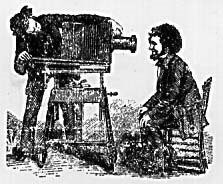What cultural studies can do, its social and cultural effects on the world was of important concern to Sardar and Van Loon in Introducing to Cultural Studies and to some of the European scholars and philosophers studying cultural studies. According to “The impact of European theory” in the Cultural Studies Reader, the theories that were created to study the “nature in culture, or elaborations of subjectivity or identity-politics in society,” were valued for their capacity to provide a “methodology for producing, reading, and consuming cultures and cultural practices.” The theory of signs, or semiotics, for example, looked at language as something that generates meaning by a systems of relationships, by producing a network of similarities and differences. This linguistic theory of the signs also served as an influential ground for other theories, such as structuralism, psychoanalysis, deconstruction, and post-structuralism. Structuralism, as it is often noted, shifted and “situated language in a scientific frame.”
1. Since several theorists have challenged Freud/Lacan’s “phallocentric models of male/female identities in culture and their proliferation in language,” gender is an important term to consider in cultural studies. According to New Keywords, “several developments transformed understandings of sex and gender...one was the overturning of earlier feminist suspicions of psychoanalytic theory as inherently masculinist, and the development of a specifically feminist pschoanalytic body of theory” (Curthoys, 141).
2. Link to Wikipedia: “Hegemony” http://en.wikipedia.org/wiki/Hegemony
Hegemony is a key term in understanding Antonio Gramsci’s “unique theory of subjectivity.” He believed that “cultural practices ranging from art, literature, education, architecture, theatre, philosophy and religion exert ‘hegemonic influences in society.” Hegemony binds society together without the use of force with the use of negotiation and consent.
3. Link to other outside source: Semiotics http://www.aber.ac.uk/media/Documents/S4B/semiotic.html
An indepth explanation of the linguistic theory of signs.
--Theresa
announcements
This blog was created by and for students in an Introduction to Cultural Studies class at the University of Washington. Through an investigation of urban experience and representation--in theory, in graphic novels and in our own "readings" of Seattle's University District--we considered the formation and history of cultural studies as an (anti)discipline, with a special emphasis on the questions, "What does cultural studies do, and how do you do cultural studies?"
If you'd like to know more about the class, the blog or our U-District artifact project, please contact Gabrielle Dean: gnodean@u.washington.edu.
If you'd like to know more about the class, the blog or our U-District artifact project, please contact Gabrielle Dean: gnodean@u.washington.edu.
Tuesday, April 15, 2008
Subscribe to:
Post Comments (Atom)
blog archive
-
▼
2008
(92)
-
▼
April
(35)
- Identity in City of Glass
- History of Origins: Race Studies
- History of Origins: Gender Studies
- History of Origins: Gender Studies
- History of Origins: America
- History of Origins: Race Studies
- History of Origins: Gender Studies
- History of Origins: Race Studies
- History of Origins: Race Studies
- History of Origins: Media and Science
- History of Origins: Media and Science
- History of Origins: Gender Studies
- History of Origins: Media and Science
- History of Origins: European Theory
- History of Origins: European Theory
- History of Origins: European Theory
- History of Origins: European Theory
- History of Origins: European Theory
- History of Origins: America
- History of Origins: European Theory
- History of Origins: America
- History of Orgins: European Theory
- History of Origins: European Theory
- History of Origins: Great Britain
- History of Origins: Great Britain
- Cultural Studies in Britain
- Cultural Studies in Britain
- History of Origins: General
- History of Origins: General
- History of Origins: General
- History of Origins: General
- "Orientalism"
- Are You an Author?
- "Paris, Capital of the 19th Century"
- READING: A WEB MODEL
-
▼
April
(35)

No comments:
Post a Comment